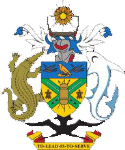The Enhanced Integrated Framework (EIF) is an Aid for Trade programme in action for Least Developed Countries (LDCs). The EIF is a global partnership involving LDCs, donors and international organisations, which support LDCs to be more active players in the global trading system by helping them tackle obstacles to trade. In this way, the programme works towards a wider goal of promoting economic growth, sustainable development and helping lift more people out of poverty. EIF activities are financed through a multi-donor trust fund, the EIF Trust Fund (EIFTF).
Solomon Islands joined the EIF programme in 2006 and launched its DTIS in 2010. The Tier 1 Phase 1 project on Enhancing Solomon Islands’ Trade Related Capacity (ESITReC) was submitted to the EIF Board (approved by the Board in December 2010) and implemented during 2011 to 2012. A fully fledged Tier 1 Project was submitted in June 2012, which was approved by the EIF Board in November 2012. The focus of the project is to strengthen the National Implementation Arrangement (NIA), including Focal Point and National Implementation Unit (NIU). The key activities under the project was:
- trade Facilitation
- trade Policy, and
- institutional framework for mainstreaming trade.
The Tier 2 Project (3 years) on Solomon Islands Tourism for Inclusive Development (SI-TIDE) was approved by the EIF Board in January 2014, and includes:
- a tourism policy/strategy/action plans which are updated/formulated, as well as capacity building of selected tourism institutions.
This has led to an increase in the number of visitors, which translates into increased employment opportunities in the tourism sector of Solomon Islands, and strengthened linkages between the tourism industry and auxiliary industries (Agriculture, Handicraft, etc.), in order to create complementary livelihood opportunities in the associated sectors.
In the Solomon Islands the Director of External Trade is the EIF Focal Point (FP) who leads the EIF process in-country and is supported by the National Implementation Unit(NIU) in the coordination, implementation and monitoring of the EIF in Solomon Islands.
The EIF Donor Facilitator for Solomon Islands is the European Union, which works with the FP to facilitate donor coordination and the donor-government dialogue on trade related issues and AfT.
The National Trade Development Council (NTDC) formerly known as the EIF National Steering Committee is chaired by the Minister of Foreign Affairs and External Trade. The NTDC is the senior-level forum for decision-making and coordination among government partners, the private sector, civil society and the donor community on trade. More information on the NTDC can be found in the relevant section in the website.
The NIU’s current activities are based on the DTIS, which is a phase essential to any new EIF entrant to identify constraints to competitiveness, supply chain weaknesses and sectors of the greatest growth and/or export potential. The DTIS includes an Action Matrix listing the priority reforms which is validated by national stakeholders and by the government. More information on the DTIS can be found in the trade policy documents section.
In addition, SI Trade Policy Framework was recently launched in 2015 by the SIG, which also contains trade related priorities at broader policy level. More information on the TPF can be found in the trade policy documents section.
Solomon Islands has benefited from a tourism project under the EIF and now a project targeting agriculture is being implemented. The Enhancing Capacity on Agriculture Trade (ECAT) project has been signed in 2018, however due to the National election in 2019, technical issues relating to accessing funds couldn’t be done - not until the new government was established later in 2019.
The objective of the ECAT project is to expand economic and employment opportunities, through systematic interventions in selected agriculture value chains and associated trade and export promotion activities, to contribute towards the realization of Solomon Islands National Development Strategy (NDS) goal to build better lives for all Solomon Islanders.
ECAT Results
The intended results/outcomes of the project are;
- to increase investment in the cassava and taro sub-sector,
- improve the capacity of NPHL, MALD and MCILI in food safety/quality assurance to address
- Technical Barriers to Trade and Sanitary and Phytosanitary Measures,
- increase value addition in Cassava and Taro production for export.
Resources
For more information visit the;
- Enhanced Integrated Framework website.
- World Trade Organization website.
